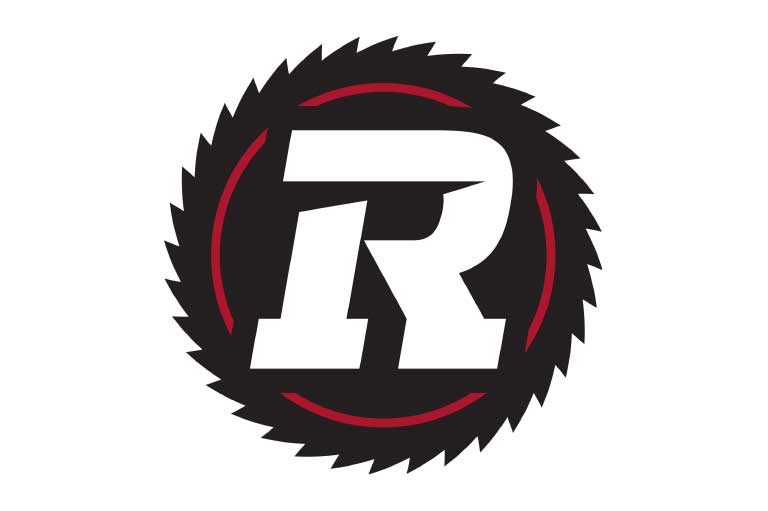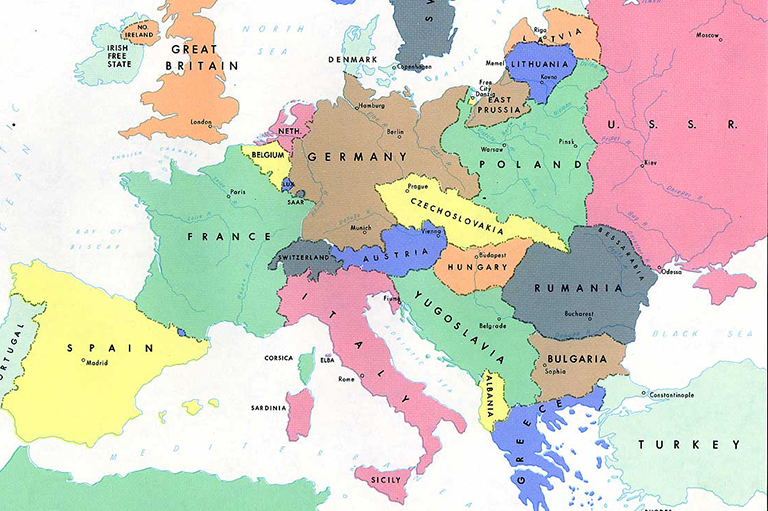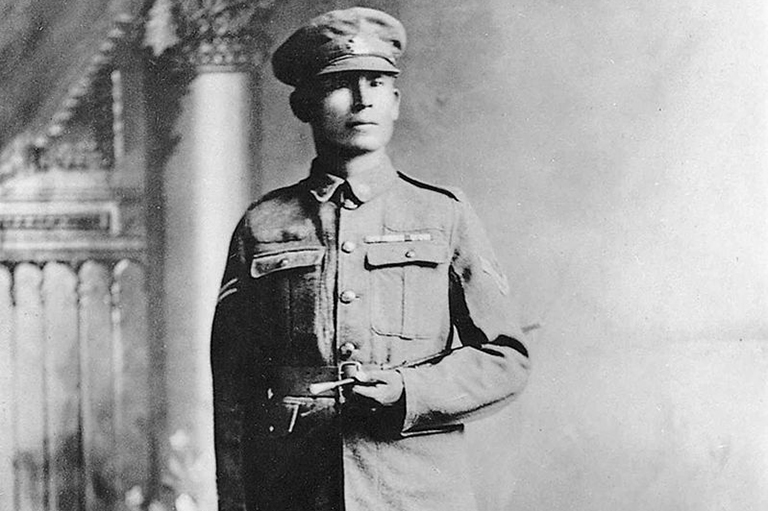Turtle Island: A Picture of Afro-Indigenous History in Canada
Grades: 5/6, 7/8
Subjects: Language Arts, Social Studies
This lesson is based on the article “Black and Indigenous” in the expanded (2022) Black history in Canada issue of Kayak: Canada’s History Magazine for Kids.
Lesson Overview
The history of Afro-Indigenous peoples is largely underrepresented in classrooms and curricula due to the group’s intersectionality. Afro-Indigenous peoples have a unique history in Canada — and more broadly across Turtle Island — that deserves to be integrated into the narrative of Canadian history and Canadian identity. The following lesson is designed to better highlight the history of this marginalized group.
Historical Thinking Concept(s)
- Establish historical significance
- Identify continuity and change
- Analyze cause and consequence
- Take historical perspectives
Part I: Identity
Identity is an important element in history, especially when we learn about marginalized groups within Canadian history. It’s important to understand that history often refers to groups in generalizations, which fails to represent the values of individual people or groups. One of the ways we can convey identity is through language. Students will explore the role of language in history and how the terms used in historical narratives can have positive or negative effects.
Lesson Activity
Ask students to:
- Summarize themselves in one word only. This can be a personality trait or a physical feature — whichever they feel is more important to share (e.g. blonde, happy, tall, etc.). This can take the form of a group discussion, or students can write down their answers to share with the teacher only.
- Summarize their families now, also in one word. Tell them the word needs to be something that matches all family members (either immediate or extended).
- Summarize their whole school or whole class in one word.
The teacher can also participate, coming up with a word to summarize themselves and their family to share with the class. Draw student’s attention to how hard it was to define themselves and their families in one word.
Ask them:
- Do you think one word represents you completely?
- Were you able to include all your family members in one word?
- Can one word represent a large group of people like your class or your school?
Invite students to share their results/ reflections with the class or they can write a short reflection to share with the instructor. Explain to your students how history and historians tend to generalize a group of people, reducing their identity into one word or phrase. However, just as one word cannot describe you or your class completely, it cannot represent a large group of people with vastly different experiences. Language is important not only when referring to marginalized groups, but also when we look at institutions that oppressed them. It is important to acknowledge both individual agency and power dynamics.
In pairs or small groups ask your students to unpack these sets of words:
- Slavery / Institution of slavery
- Slave / Enslaved person
- Fugitive / Freedom seeker
- Master / Enslaver
Compare and contrast each word in a set and the notions of agency and power. Students may perform individual research into each word if they need more context. Is there a sense of a positive or negative impact?
E.g. Using the phrase “institution of slavery” instead of “slavery” acknowledges a far-reaching system with several social, economic, and political supports that allowed it to continue. Saying “enslaved person” instead of “slave” recognizes a person’s enslaved status as something imposed on them, not an intrinsic value. “Fugitive” has negative connotations, invoking images of criminality and removing autonomy from the enslaved person. “Enslaver” disputes the idea that the people who enslaved Black people had any intrinsic power.
Draw your students’ attention the power of language. The words we use in history are important, especially when we’re discussing marginalized groups of people. It is important to understand the influence of colonial thought on the organization of social hierarchy and the inequitable practices that result from it. The terminology and the origin of certain words is just one example among many. Each group has the right to define its identity and to reject a vocabulary that aims to dehumanize them and/or to deny the cultural differences that exist between them.
Part II: Proclaiming Our Roots
Students will walk through real-life stories to better understand Afro-Indigenous experiences.
Lesson Activity
Ask students to:
- Read one of the following articles in large group: Etanda Arden or Melissa Brown. Discuss the roots, challenges, and journeys of Ms. Arden or Ms. Brown.
- Direct students to the Proclaiming Our Roots website and have them select a digital story to watch.
- Have students write down 5 important facts they learned from the story they selected.
- Review in the large group and invite students to share what they learned, what surprised them, what they would like to learn more about. The teacher may also write the names of the people in the stories on large sheets around the classroom, having each student contribute information about the person they selected. This way, everyone can cover the stories they may not have had time to listen to.
Part III: Furthering Understandings
By the end of this exercise, students will have a better understanding of the consequences of colonization on Indigenous and Black peoples.
Lesson Activity
Ask students to read the article “Black and Indigenous” in the expanded (2022) Black history in Canada issue of Kayak.
First, students will do research to answer the questions they have raised following their reading in a journal reflection or other applicable format.
Then, students will synthesize their understandings of the concepts of identity and lived experience (from Kayak and other sources) and work as a class or in groups to create a student-friendly learning guide. At least one student should cover each of the following points about Afro-Indigenous history:
- History, origin, geography
- Links between Black and Indigenous communities in the past and today
- Challenges faced by Afro-Indigenous peoples
- Achievements of Afro-Indigenous peoples in Canada
Suggested individuals to research:
- Julian Taylor
- Larissa Crawford
- Ann Marie Beals
- Joy Henderson
Once students have researched their topics, they can compile them into a large booklet, binder, or poster to be displayed in the class. This can be a yearly activity that students continuously contribute to and update.
Resources
- Black history in Canada issue of Kayak (expanded 2022)
- Digital Stories (Proclaiming Our Roots)
- “Identity on a plate: Caterer embraces her Anishinaabe-Jamaican roots through food” (CBC)
- “Writing Myself into Existence: An Essay on the Erasure of Black Indigenous Identity in Canadian Education” (Yellowhead Institute)
- Colonial violence with Dr. Afua Cooper (YouTube)
- Violence coloniale envers les autochtones — Serge Bouchard chez les Souverains (YouTube) [en français]
- La Colonisation (YouTube) [en français]
Themes associated with this article
Advertisement




